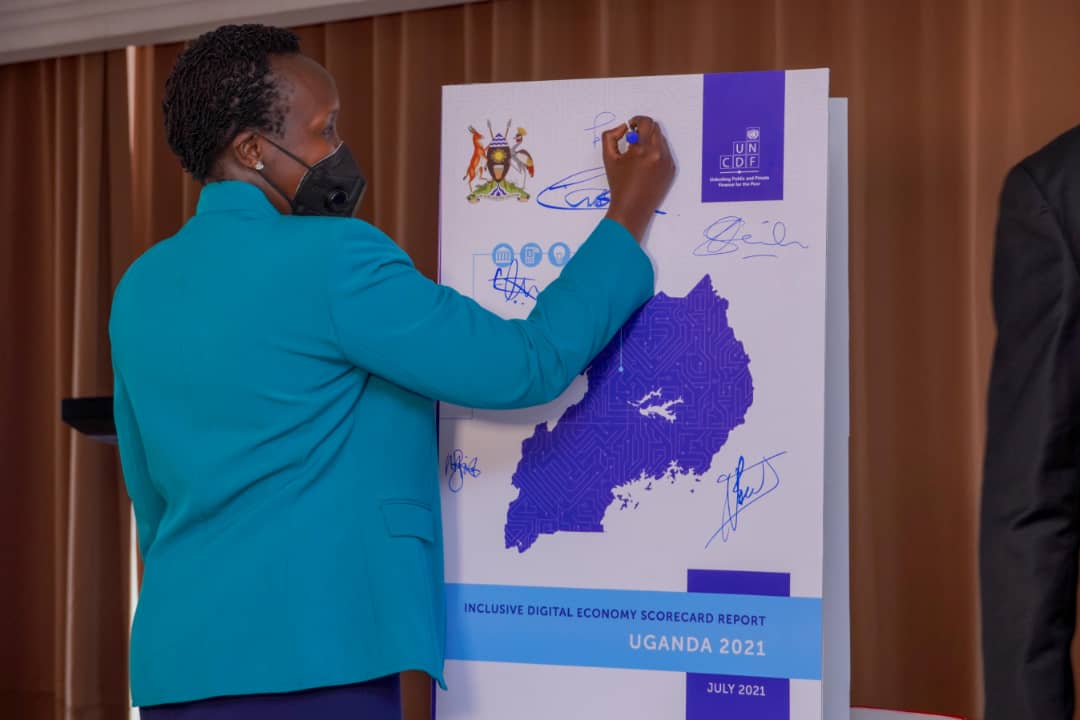Low ownership of phones remains a gap that must be addressed so as to give a strong boost to the infrastructure needed to build inclusive digital economy.
This is according to a new report by United Nations Capital Development Fund (UNCDF) and the Ministry of ICT.
The Inclusive Digital Economy Scorecard (IDES) report 2021 launched Thursday shows that Uganda is failing to implement the policy due to poor skills, low information and communications technology (ICT) infrastructural development.
It follows a 2019 initiative by UNCDF and Sweden Development Agency (SIDA) dubbed “Leaving No One Behind in the Digital Era” in Uganda.
According to the new report, the cost of mobile devices, especially smartphones, is high compared with income, which keeps many out of the opportunities provided by connectivity.
Taxation is also a contributing element to such costs.
Only 30 percent of the 2.7 million new devices that were connected to the network in Uganda in the last year were smartphones, according to the latest figures by Uganda Communications Commission (UCC).
Active devices connected to the networks have grown to 32 million devices in June 2021, however, 70 percent (22.4 million) of the new terminals are basic and feature phones.
While presenting the report at Sheraton Hotel in Kampala, Dr. Francis Tusubira the IDES consultant said Uganda is performing well in terms of making policies but has a hard time in implementing those policies to generate the expected impact of ICT on the economy and citizens.

“Two major gaps need to be addressed. Moving from policy and regulation to effective implementation remains a major challenge. Until this is addressed, the wide gap between policy and regulation and development outcomes achieved will remain small,” Dr. Tusubira said.
The Minister of State for National Guidance Kabbyanga Godfrey Baluku admitted that though there has been a big investment in ICT by both Government and the private sector, there is a lack of harmonization of measurements with industry indicators.
“This in part has led to Uganda being ranked unfavourably in the Global ICT Index due to lack of visibility. Therefore, this scorecard comes in handy in addressing this challenge,” the minister said.
He appealed to the various sectors of government to adopt a modern approach to data governance that leads to accurate, quality data.
On his part, Chris Lukolyo, the UNCDF Digital Country Lead said the report came at a time when various countries are showcasing how they are doing in terms of policy, structure, innovation and skill in order to achieve an inclusive digital economy.
“Uganda is not alone and at this forum, this leadership role that has been taken by the government of Uganda will be further highlighted. So, from us, it’s simply a statement of deep thanks and appreciations and we pledge to continue working with the government and other stakeholders in the public and private sector to achieve an inclusive digital economy that leaves no one behind.”
The report showed that the major national deficiencies in both basic skills and digital skills are Uganda’s greatest challenge in building an inclusive digital economy. It could indeed be said that this is a national crisis.
Until these two gaps are addressed, the potentially very high development impact of the ICT sector initiatives cannot be achieved.








